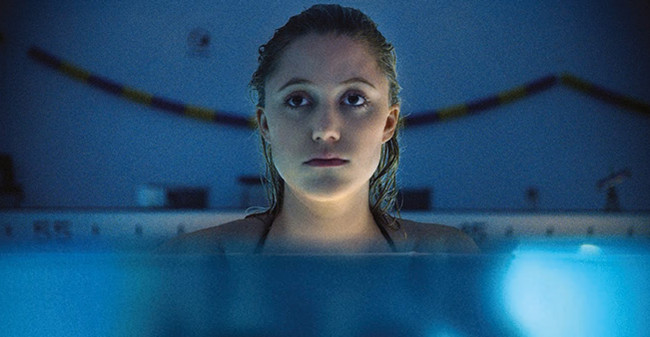
Genre fans have been joyously experience a horror renaissance in recent years as mainstream cinema outlets and soaring box-office receipts reinforce that fright films have gone populist across the board.
The following list is sure to spark discussion and ire (this is the internet after all) but let’s quickly clarify a few points before celebrating the most original horror movies of the last nearly two decades. The films represented here are deemed “original” in that they contain no reboots or remakes (apologies to Luca Guadagnino’s Suspiria, otherwise it’d have made the cut), no adaptations (hence no Under the Skin or Let the Right One In, amongst others).
With such a lofty title for a list and then reducing the list to a mere ten titles means that many recent horror luminaries didn’t make the cut, but that doesn’t mean they weren’t carefully considered.
It pains me that Jaume Balagueró and Paco Plaza’s REC (2007) were just barely squeezed out, and it seems unjust that the following filmmakers and more had to be overlooked; Alexandre Aja (High Tension [2003]), Ari Aster (Hereditary [2018]), Robert Eggers (The Witch [2016]), Karyn Kusama (The Invitation [2015]), Jennifer Kent (The Babadook [2014]), Pascal Laugier (Martyrs [2008]), Issa Lopez (Tigers Are Not Afraid [2017]), James Wan (The Conjuring [2013]), Ti West (The House of the Devil [2009], The Innkeepers [2011]), and Adam Wingard (You’re Next [2011], The Guest [2014]).
Alright, with that little bit of housecleaning now cast aside, the movies we’re about to spotlight were chosen for their bold reworking and/or reimagining of specific horror tropes, for their audacity and electricity, for their nightmare fuelled manipulations of archetypal human fears, as well as culturally and socially specific anxiety expressions. The morbid impulse, the sexual darkness and the primeval pleasure of fear are displayed here with artistry and deep perception. If you’re brave enough, step right up.
10. The Wailing (2016)
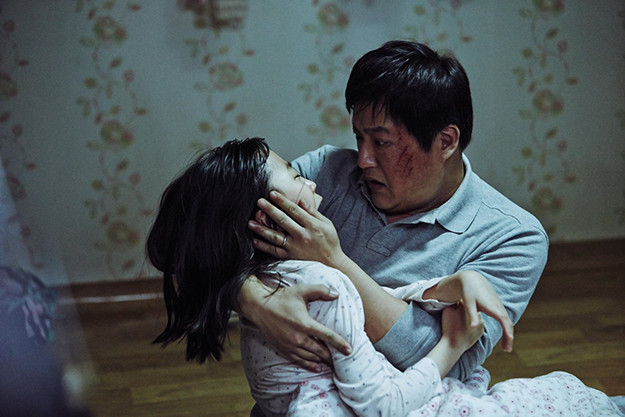
This cleverly constructed and incredibly atmospheric South Korean horror film from director Na Hong-jin (The Yellow Sea [2010]) is a disturbing journey deep into the heart of darkness. Uncertainty and unhealthy suspicion decays into hysteria when rural Goksung villagers connect a string of ferocious murders to the arrival of a mysterious Japanese visitor (Kunimura Jun).
Investigating Officer Jong-goo (Kwak Do-won) soon finds himself in the center of a savage and genuinely formidable fright film with shamans, femme fatales, demonic possession and other assorted nightmares. This brief descriptor is deliberately vague so not to give away anymore of this surprising genre mashup in what’s one of the most surprising, powerful, and ominously imaginative chillers in recent memory.
9. 28 Days Later (2002)
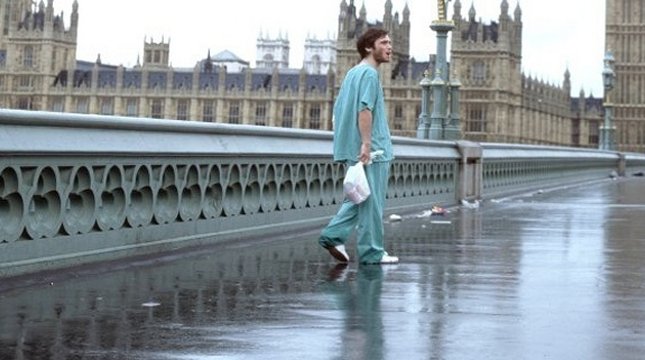
Danny Boyle’s post-apocalyptic horror film 28 Days Later (with mad props to star screenwriter Alex Garland) reworks and revives the zombie genre by giving it political figuration, humanist tragedy, and style to spare.
Quicker than you can say “The Day of the Triffids”, Jim (Cillian Murphy), a bicycle courier, awakens in a London hospital from a coma 28 days after a contagion has hit humanity hard. This virus induces terrible rage in those affected via blood and saliva, so while technically not a zombie bacillus –– nerds, we hear you, it’s not your atypical zombie apocalypse –– the film uses all those familiar tropes in artful and terrifying new ways.
So Sunny Jim soon pairs with other survivors –– including a breakout performance from the sensational Naomie Harris –– and the film focuses on their struggles and sorrows as they rise to occasion in a frightening new reality. Provocative, playful, and told with tireless energy, 28 Days Later is a great character-driven panic attack that hard-edged horror fans rightfully revere.
8. A Field in England (2013)
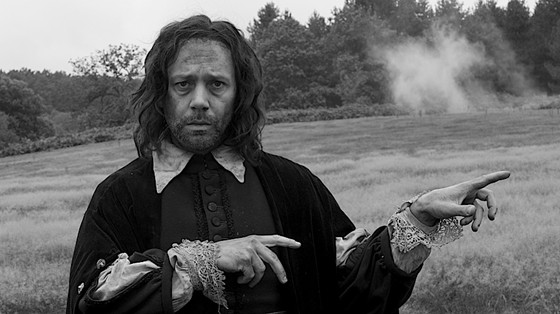
Ben Wheatley’s incomparable A Field in England is the ultimate midnight movie as it gleefully blurs the line between dream and reality. Set in mid-17th century England this film is a black comedy disguised as an arthouse horror film that unravels like a morally ambiguous Möbius strip as it follows Whitehead (Reece Shearsmith) fleeing from a demonic alchemist named O’Neill (Michael Smiley) amidst a bloody English Civil War battle. Cursed and accompanied by a trio of deserters this ill-starred crew, high on psilocybin mushrooms, are soon at the mercy of O’Neill.
A Field in England is a black comedy masquerading as an arthouse horror film that sobs and squirms like the bastard child of Jim Jarmusch’s Dead Man (1995) and Michael Reeves’s Witchfinder General (1968), but even those comparisons don’t do the film much justice.
Cinematographer Laurie Rose lenses a monochrome world of creepy close-ups and other odd and ominous tricks as the trippy pastoral mise en scène mutates into a Grand Guignol chamber of horrors. Pitch-dark humor, abstract allure, quick-witted dialogue and grisly, visceral and enjoyably indulgent thrills proliferate with alacrity and alarm leading to a frightful finish. To miss out on A Field in England would be a regrettable faux pas.
7. The Devil’s Backbone (2001)
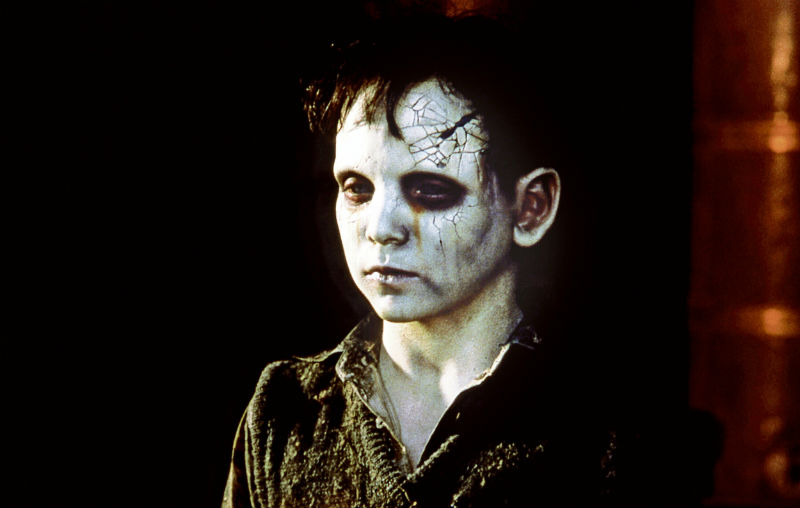
Eerie atmospherics and a mournful child ghost haunts the heart of Mexican fabulist Guillermo del Toro’s melancholic masterpiece from 2001, The Devil’s Backbone. One of the most personal films in del Toro’s distinguished filmography, this is also one of his most terrifying and emotionally complex.
When selecting one of del Toro’s films for this list it really came down to this one or its companion piece, Pan’s Labyrinth (2006). Both films are set during the Spanish Civil War and feature a child protagonist confronted with the horrors of fascism under Franco, and both will leave a lasting impression, subsequently obsessing and teasing the viewer like a loose tooth for days afterward.
Unraveling in Spain in 1939, at the close of the Spanish Civil War, del Toro and co-writers David Muñoz, and Antonio Trashorras tell the tragic tale of Carlos (Fernando Tielve), a twelve-year-old boy who, after his freedom-fighting father is killed fighting the fascists, is sent to a rural orphanage full of sadness, terror, and terrible secrets.
Del Toro both methodically and passionately combines the gothic ghost story, the historical melodrama and a riveting murder mystery into a formal and frightening mélange that is carefully designed to dramatically articulate that the most horrific and shocking monsters are the human ones.
6. Trouble Every Day (2001)
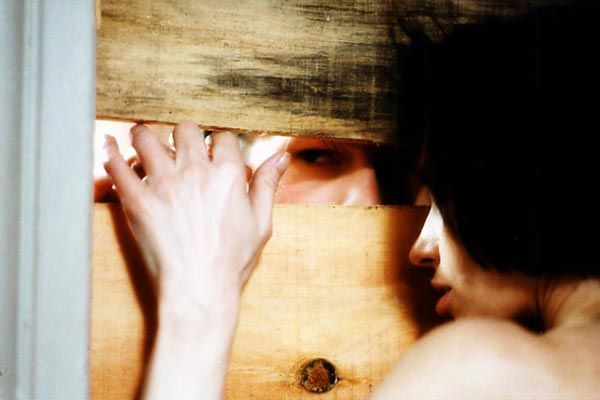
Few filmmakers can connect sexual craving and appetite with that for human flesh as brazenly and slyly as Claire Denis does with this sparkling gem of the New French Extremity, her transgressive 2001 masterpiece, Trouble Every Day. As controversial as it is genuinely and artfully atmospheric, Denis delights in devouring recognizable horror movie motifs with a formative hunger.
Two disparate storylines slowly intertwine in Trouble Every Day, one involving Shane (Vincent Gallo) and June (Tricia Vessey), American newlyweds honeymooning in La Ville -Lumière, the other involving Léo, a doctor (Alex Descas) and his ravishing wife, Coré (Béatrice Dalle).
Coré, it seems, has a vampiric bloodlust and a raging libido that makes her sexual hunger and that for human flesh completely indivisible. Is a similar fate befalling Shane? How are these four lost souls’ paths enmeshed? The answers will astonish the viewer in what Film Comment’s Max Nelson describes as “the kind of public self-exorcism a director can only get away with once in a career.”